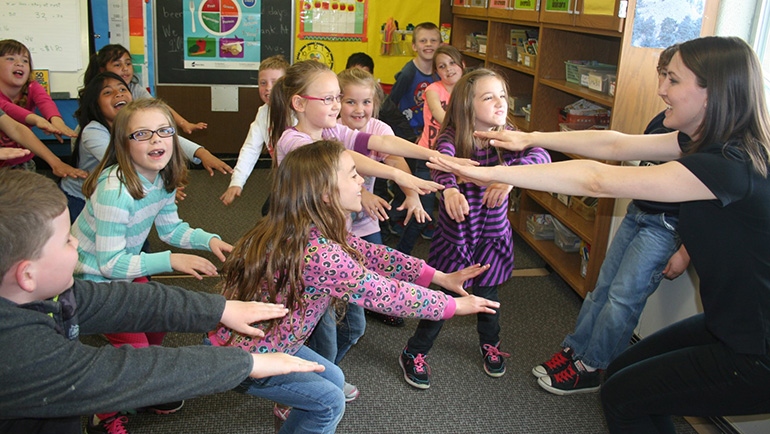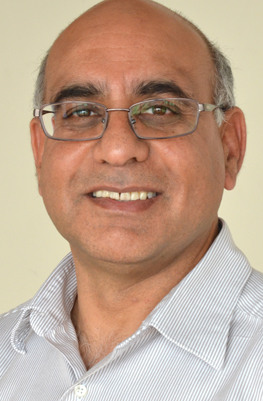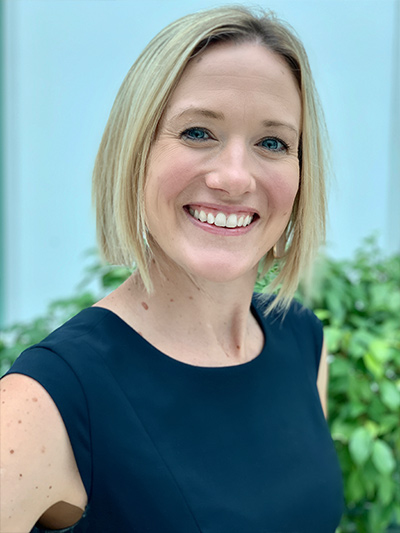
DETROIT – The Michigan Health Endowment Fund awarded more than $1 million to three Wayne State University projects focusing on health and nutrition.
The awards are part of the Health Fund’s Nutrition & Healthy Lifestyles initiative, which funds projects that make healthier habits more accessible to seniors, children and their families.
“We're pleased to support Wayne State University as they provide healthy eating and physical activity opportunities for Michigan residents of all ages,” said Laurie Solotorow, program director at the Health Fund. “These three programs — featuring school-based care, community-driven programming and collaborative aging support — are a cross section of the wide variety of important health initiatives developing in Michigan.”
The three WSU projects each address different aspects of health and nutrition across the lifespan, from children to adults to older adults.
Building Healthy Communities, a school-based program developed by the College of Education’s Center for Health and Community Impact and the University of Michigan, received $500,000 for two years to continue offering a school-based curriculum encouraging healthy food access and physical activity to 3,600 elementary and middle school students in high-need school districts throughout Michigan.

“This award from the Michigan Health Endowment Fund is critical in expanding the reach of the Building Healthy Communities into more Michigan school districts located in under-resourced communities with well-established health and education disparities,” said Laurel Whalen, the Building Healthy Communities program manager. “The funds will allow Wayne State University's Center for Health and Community Impact, along with its many public and private partners, to prevent and reduce childhood obesity, increase children and families’ physical activity and healthy eating, and improve academic achievement — all documented outcomes for children who attend schools that implement the program.”
The Citizenship for Health received $198,892 to implement a deliberative democracy model to promote healthier behaviors to the 5,000 residents in Detroit’s HOPE Village neighborhood. Through the deliberative democracy model, residents will develop, implement and sustain solutions to health concerns in their community.

The practice empowers residents to take an active part in their community’s health while building social cohesion. Communication professor Pradeep Sopory and Marc Kruman, history professor and director of Center for the Study of Citizenship, lead the program.
“The MHEF grant provides significant funding for the community-based Citizenship for Health program, which will strengthen democratic citizenship processes and establish habits of civic engagement to improve the health and well-being of the community,” said Sopory. “In particular, the program will deepen democratic deliberative practices in the community that will empower residents to both develop and implement projects to improve nutrition and physical fitness in their community.”
The Functional Aging & Mindfulness for Seniors (FAMS) program, which received $375,000 for two years, will aid senior health through a combination of healthy food access, physical activity and mindfulness.

Specifically, the program targets specific health disparities in metro Detroit’s senior population through physical activity and healthy eating access, social support and interaction through intergenerational groups, caregiver engagement, and environmental and systems-level changes. College of Education professors Jeanne Barcelona and Mariane Fahlman head the project.
“The Health Fund’s generous award affords us the opportunity to connect and collaborate with an impressive and dedicated network of community partners, including the Presbyterian Villages of Michigan, Detroit Area Agency on Aging, Generations United and Wayne State’s Institute of Gerontology,” said Barcelona. “Together, we will build comprehensive infrastructure that will provide seniors with multicomponent physical activity and healthy eating access, social support and interaction through intergenerational groups, caregiver engagement, and environmental and systems-level changes.”
About the Michigan Health Endowment Fund
The Michigan Health Endowment Fund is a philanthropic foundation that works to improve the health and wellness of Michigan residents while reducing health care costs. The Health Fund supports organizations across Michigan. From the urban streetscapes of downtown Detroit all the way to the rural corners of the Upper Peninsula, our partners are doing innovative, evidence-based work to improve the health and wellness of Michigan residents. For more information on the Michigan Health Endowment Fund, visit mihealthfund.org.
About Wayne State University
Wayne State University’s mission is to create and advance knowledge, prepare a diverse student body to thrive, and positively impact local and global communities. Wayne State University is a nationally recognized urban research institution offering more than 350 academic programs through 13 schools and colleges to more than 26,000 students. It is a place of opportunity and excellence. Opportunity means that financial status has no bearing on students’ access to quality higher education at a major academic research institution. For more information, visit wayne.edu.
Contact:
Julie Burtch
Director of Foundation Relations
313-577-9026
